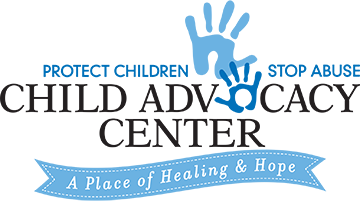
Just the mention of childhood sexual abuse startles a person’s senses as a rush of emotions can flood a person’s mind whether you are a victim or know of someone who is a victim. It is not a topic many people want to discuss because discussing sexual abuse means that it is a reality in our world. Unfortunately, it is not only a reality, but it is a commonality as well. Until the last 10 years or so, this issue has been unspoken in public and hushed in families so no one would know. But being able to talk honestly about an issue promotes the ability to cope with emotions and memories of the trauma of abuse. So, let’s talk about it here! There is hope in coping skills.
The silence of secrecy has the opposite effect, because a secret is information which is intentionally kept away from others for a reason. With childhood sexual abuse, that reason is typically some combination of shame and fear which wounds that child. A child who has been the victim of sexual abuse simply cannot understand the implications of what has happened to him or her. A child can experience a long list of negative emotions, such as betrayal, but not know what to call them or how to deal with those kinds of strong emotions. However, if a child has a healthy relationship with at least one person they trust, meaning that they feel safe enough to talk about feelings without being rejected, then that child can get a sense of validation as a person, which will go a long way in restoring a reasonable sense of self. There is hope in the validation of a wounded person.
Part of the process of childhood sexual abuse usually includes some type of grooming and private access to that child. And those who prey upon children know they are doing wrong and causing great harm to that child, or else abuse would not happen in private. An abuser often tells his victim that ‘it’s just our little secret’ or ‘no one will believe you’ or ‘it was your fault’. Those are lies. By manipulating the emotions of an innocent child, a predator is trying to control the response of his victim so that no one will suspect him. He is a master deceiver of that child and anyone who may suspect him because he knows the power of the truth, even from a child. There is hope in the truth.
It is a delicate balance for parents and caregivers to talk to their children about physical boundaries, especially sex. Young children may not fully grasp these ideas without confusion and apprehension. Thankfully, now there are trained professionals and age-appropriate resources available for parents and caregivers to educate themselves on how to discuss these important issues with their children as a strategy for safety, prevention and awareness. It is a matter of building trust between parents and caregivers with their children as preparation for recognizing the subtle signs of danger before an opportunity to abuse a child happens. There is hope in safety, prevention and awareness.
So, is there any hope for the victim of childhood sexual abuse? Yes, there is. Hope is also found in the compassion and nurturing of every person in the life of a child. Thus, relationships must be monitored. It may take months or years for a victim of childhood sexual abuse to find the courage to reveal a secret so buried inside her or him. As long as this trauma remains buried in secrecy, the process of healing cannot properly begin. Being a victim means that something was taken away from them without permission, resulting in a loss. And, every person deserves time to grieve that which was lost. During that time, it is necessary to the overall healing process to believe someone who seeks to be heard and believed because that shifts shame and fear from the victim to the abuser, where it belongs. And then, a person who is healing can find much hope in healing as a survivor.
Carol Yeager
SNAP (Survivors Network of those Abused by Priests) Facilitator for Fayetteville & Fort Bragg Chapter
